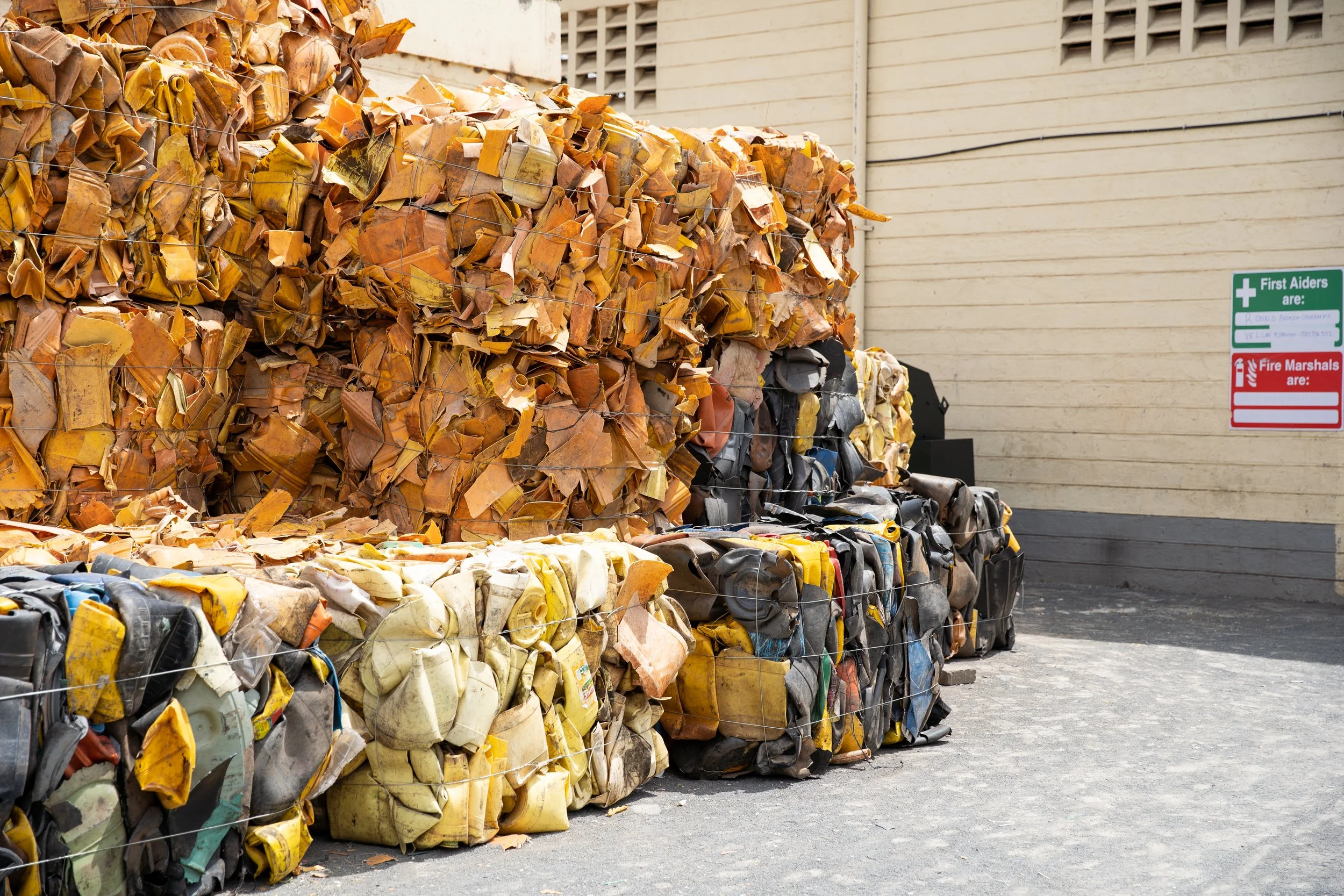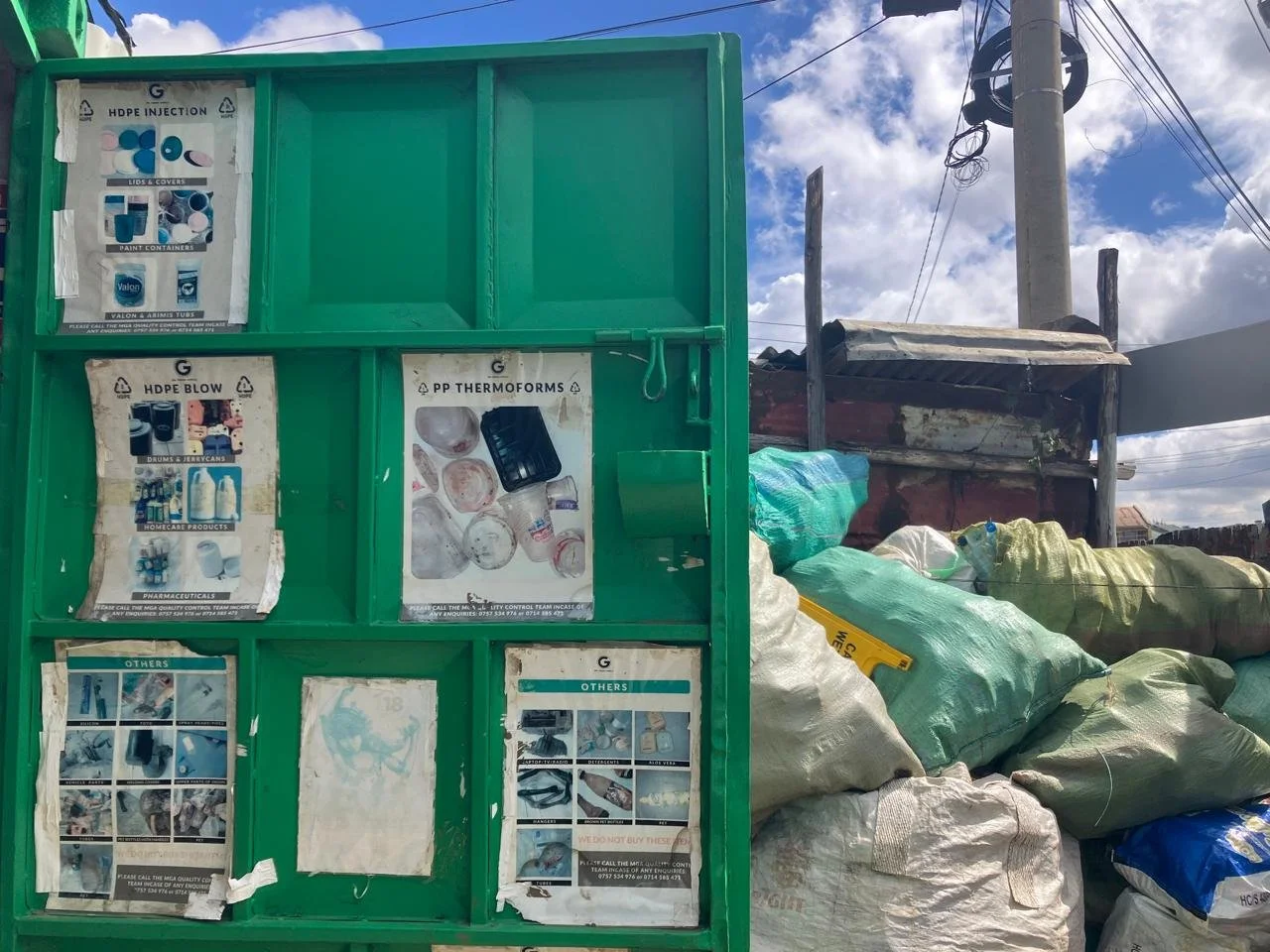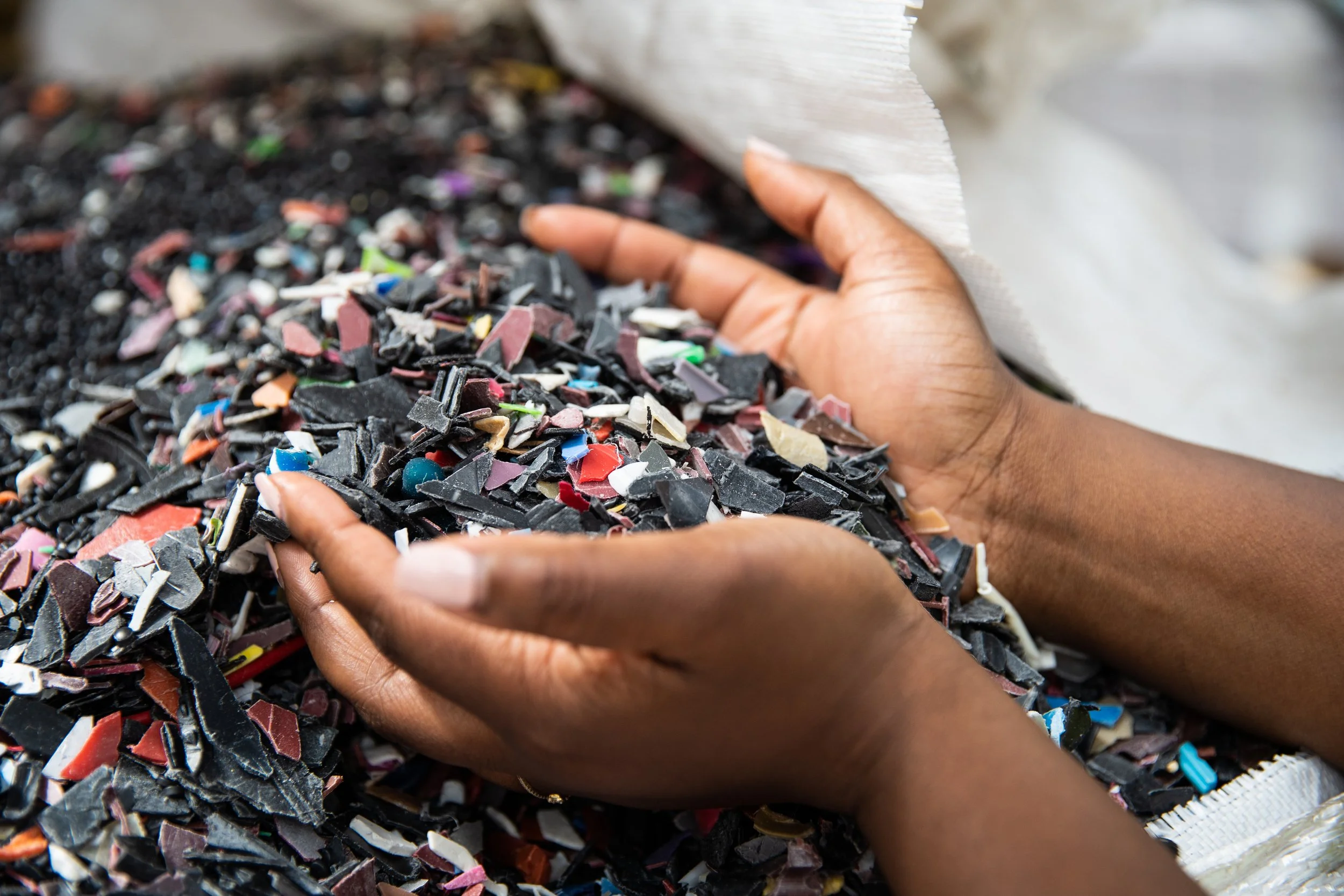Pilot Launch | Regini Finance: Using stablecoins to build financial resilience for Kenyan informal waste collectors
Image courtesy of Mr. Green Africa
Mercy Corps Ventures has partnered with Regini Finance and Mr. Green Africa to test stablecoin-based savings and investment tools for Kenya’s informal workers.
In Kenya, where over 80% of the workforce is informal, financial exclusion is a significant barrier to climate resilience. Working alongside Regini and Mr. Green Africa, we are testing a first-of-its-kind savings solution that operates over WhatsApp and USSD — removing barriers for low-income communities without access to smartphones or stable banking.
This blog is the first in a series that will share learnings and insights from the pilot as it progresses.
In Brief
Context: Kenya’s informal workers are increasingly vulnerable to climate and economic shocks, with few financial safety nets to fall back on.
Pilot focus: Stablecoin-powered USD savings offer an opportunity to improve financial and climate resilience for the country’s informal waste collectors.
Solution: Regini enables users to save as little as $2.70 via WhatsApp or USSD, offering a low-cost alternative to traditional banks and money market funds.
Goal: Help users build financial buffers against climate shocks, inflation, and income volatility.
Image courtesy of Mr. Green Africa
The Problem
Financial exclusion compounds climate risks for Kenya’s informal workers.
Despite the expansion of mobile money, 85% of Kenya’s workforce still operates in the informal sector — and less than 10% are considered financially healthy. They face irregular incomes and currency volatility, and lack access to affordable tools to build savings or invest.
For informal waste collectors, these challenges are magnified. Irregular cash flow, compounded by inflation and climate disruptions — like floods that halt collection or extreme heat that limits working hours — leaves them financially vulnerable. A 2024 Central Bank of Kenya survey found that casual workers are the least financially resilient group in the country.
Existing solutions don’t serve them.
Conventional savings options often come with high barriers, such as minimum deposit requirements of $50 to $100 and annual fees of up to 2%. These thresholds effectively exclude the very communities most in need of secure, inflation-protected savings.
Image courtesy of Mr. Green Africa
The Solution
Regini’s pilot offers a simple, low-cost, dollar-denominated savings solution accessible via WhatsApp and USSD.
How it works:
User onboarding is done in-person with the help of trained community ambassadors.
Users save or withdraw funds via M-Pesa.
Users engage with financial literacy tools, including an AI-powered WhatsApp chatbot.
Users earn small incentives for consistent saving and for completing financial education modules.
The pilot directly serves the waste collectors within Mr. Green Africa’s network of over 7,000 informal workers — nearly half of them women.
Key features:
Minimum savings: As low as $2.70 (350 KES)
On/Off- ramps: M-Pesa, powered by Kotani Pay
Security: Funds held securely via Fireblocks’ MPC wallet infrastructure
Compliance: KYC and AML managed by SmileID; regulatory alignment through Kenya’s Virtual Assets Chamber of Commerce
Image courtesy of Mr. Green Africa
The Innovation
This pilot is unique for several reasons:
Ultra-accessible: Available on USSD and WhatsApp; no smartphone required.
10x cheaper: Compared to traditional savings vehicles in Kenya.
Behavioral rewards: Incentives paired with financial literacy training build long-term savings habits.
“By bringing stablecoin savings to informal workers, we’re unlocking access to dollar-based financial tools that were previously out of reach.” — Pank Seelen, Founder of Regini Finance
Learning Agenda & Key Hypotheses
We’re testing three core hypotheses:
Access to affordable stablecoin savings improves climate and financial resilience. Measured by user-reported resilience, sustained savings behavior, and ability to cope with income or climate shocks.
Behavioral rewards plus financial literacy drive sustained savings behavior. Measured by milestone completion rates, savings growth over time, and user retention after incentives.
Web3 lowers costs and increases operational efficiency. Measured by transaction cost savings, withdrawal speeds, and reduced operational overhead versus traditional finance.
Image courtesy of Mr. Green Africa
Impact Potential
This pilot aims to serve 500 to 1,000 waste collectors by the end of 2025. Long term, the model is designed to scale beyond Kenya by leveraging the affordability and accessibility of blockchain-based infrastructure.
Supports climate adaptation and recovery by enabling users to build emergency savings funds.
Reduces dependency on volatile local currencies.
Provides instant withdrawal access in emergencies compared to traditional savings that takes anywhere from one to three days.
Stay Tuned
This pilot is a critical step toward strengthening financial and climate resilience for informal workers through stablecoin savings and web3 tools. Follow along as we share insights, outcomes, and pathways for scale.
Follow us on LinkedIn | Follow us on X (Twitter)





